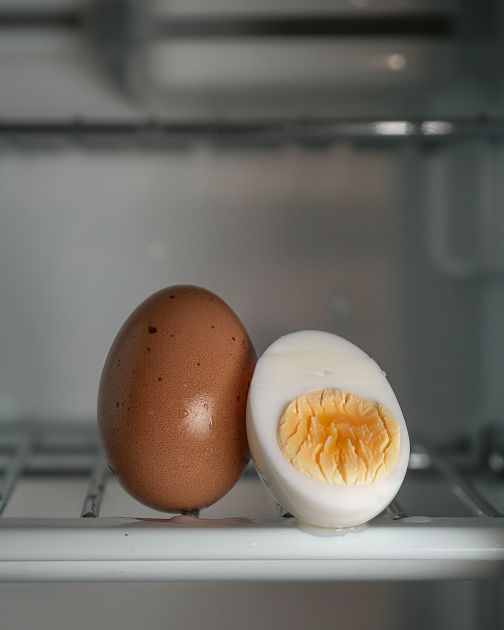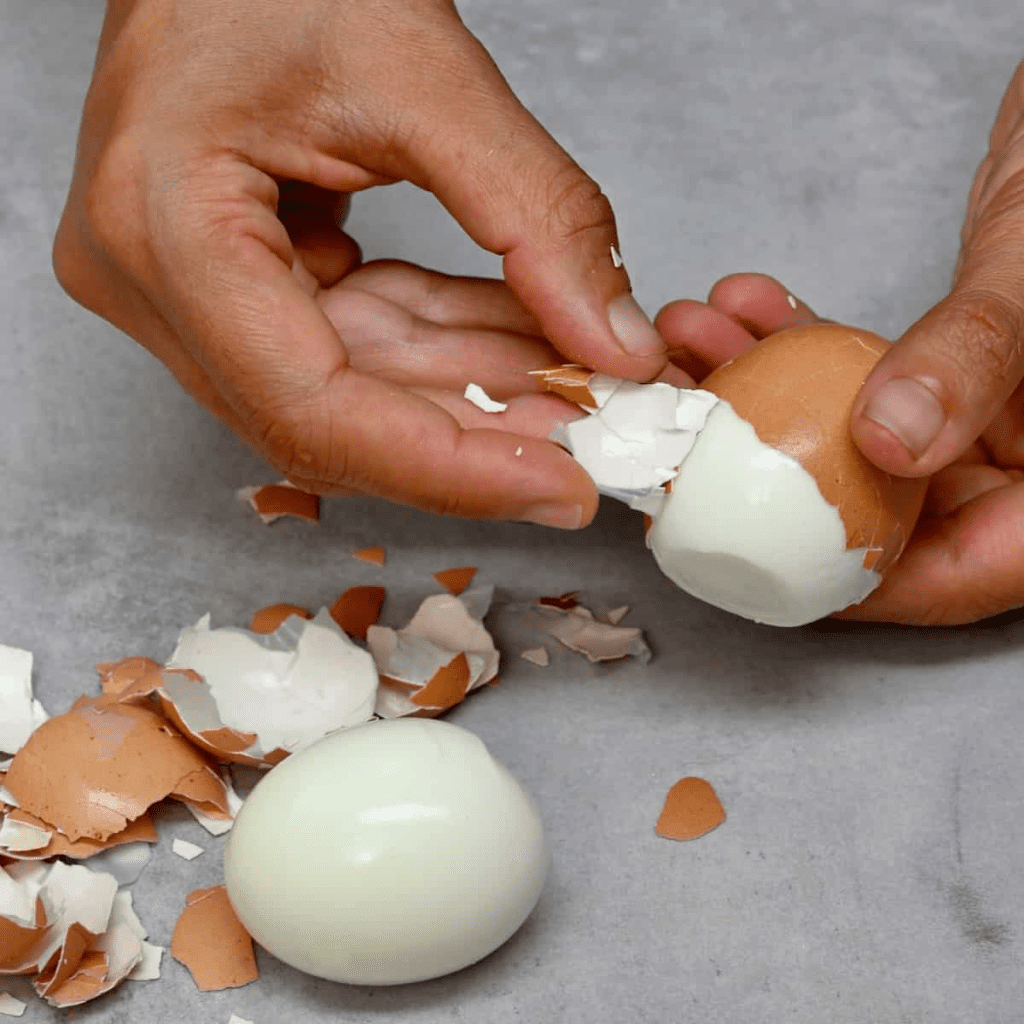Eggs are a kitchen staple for many, beloved for their versatility, nutrition, and simplicity. But once you’ve hard-boiled a batch, the question arises: should you peel them before you store them in the fridge? The answer isn’t as straightforward as you might think. In this article, we’ll explore the pros and cons of storing peeled versus unpeeled hard-boiled eggs, and which method might be best for you.
The Importance of Proper Egg Storage

Storing hard-boiled eggs the right way is essential for preserving their quality, flavor, and safety. Eggs can absorb odors and moisture from their surroundings, which can influence their taste and texture over time. Additionally, how you store your hard-boiled eggs can directly impact their shelf life and risk of bacterial contamination.
Quality and Freshness Matter
When it comes to eggs, freshness is king. The way you store your hard-boiled eggs—whether peeled or unpeeled—will affect their freshness, usability, and even flavor. Both methods have their advantages, but understanding the best practices for each can help you make an informed choice and get the most out of your eggs.
Storing Hard-Boiled Eggs: Peeled or Unpeeled?
There are two main options for storing hard-boiled eggs in the fridge: leaving them in their shells or peeling them first. Each approach comes with its own set of benefits and drawbacks.
Unpeeled Hard-Boiled Eggs: Nature’s Protective Barrier
Keeping hard-boiled eggs in their shells can actually be the best way to store them for several reasons:
- Protection from Odors: The shell acts as a natural barrier, preventing the egg from absorbing odors from the fridge. This helps maintain the egg’s original flavor and keeps it tasting fresh.
- Extended Shelf Life: The shell provides a layer of protection against bacteria, which can extend the egg’s shelf life. Hard-boiled eggs with their shells intact can last up to one week when properly stored in the fridge.
- Less Moisture Loss: The shell helps prevent the egg from drying out, preserving the texture and moisture of the egg white.
Peeled Hard-Boiled Eggs: Convenience on Demand
On the other hand, peeling hard-boiled eggs before storing them has its own advantages, particularly for those who want their eggs ready to eat at a moment’s notice:
- Ready-to-Eat Convenience: Peeled eggs are perfect for quick snacks, salads, and meal prep. If you’re looking for grab-and-go options, peeling in advance saves time.
- Immediate Use: Peeled eggs are great if you plan on using them within a few days. You can store them in a tightly sealed container or a bowl of cold water to keep them fresh.
- Enhanced Flavor Absorption: If you’re storing peeled eggs for recipes, they may better absorb flavors from marinades or seasonings, which can add a unique twist to your dishes.
However, peeled eggs are more vulnerable to bacteria since they lack the protective shell. They must be stored carefully, ideally in an airtight container, to avoid contamination and to maintain their freshness.
Best Practices for Storing Hard-Boiled Eggs in the Fridge
To maximize the shelf life and safety of your hard-boiled eggs, it’s essential to follow a few best practices. Whether you choose to keep them peeled or unpeeled, here’s what you need to know:
Storing Unpeeled Hard-Boiled Eggs

If you decide to leave the shell on, place your hard-boiled eggs in a covered container or bowl. Keep them on a shelf within the fridge and avoid storing them in the fridge door, where temperatures can fluctuate.
- Shelf Life: Unpeeled hard-boiled eggs can last up to one week in the fridge.
- Storage Temperature: Store at 40°F (4°C) or lower to prevent bacteria growth.
- Container: Use a covered container to protect the eggs from absorbing any strong odors.
Storing Peeled Hard-Boiled Eggs
For peeled eggs, it’s critical to keep them in an airtight container. If you’re not planning to eat them right away, you can also store peeled eggs in a bowl of cold water, changing the water daily to keep them fresh.
- Shelf Life: Peeled eggs should ideally be consumed within two to three days.
- Storage Method: Use an airtight container or cover them in cold water, ensuring the eggs are fully submerged.
- Refrigeration: Like unpeeled eggs, peeled eggs should be stored at 40°F (4°C) or lower.
Pros and Cons: Unpeeled vs. Peeled Hard-Boiled Eggs
When it comes down to it, each storage method has unique advantages and potential drawbacks. Here’s a quick breakdown to help you decide based on your needs:
| Storage Method | Pros | Cons |
|---|---|---|
| Unpeeled Eggs | Longer shelf life, protects from odors, retains moisture | Must be peeled before use, can be less convenient |
| Peeled Eggs | Convenient, ready to eat, ideal for meal prep | Shorter shelf life, higher risk of contamination, can dry out |
Choosing the right method depends largely on your usage plans. If you want eggs that will last for several days and don’t mind peeling them when you’re ready to eat, leaving the shells on is your best bet. However, if you prefer convenience and plan to use the eggs quickly, peeling them first can make sense
The Verdict: Should You Peel Hard-Boiled Eggs Before Storing?

In most cases, the answer is no—hard-boiled eggs are generally better stored with their shells on. The shell acts as a natural shield, extending the egg’s shelf life and protecting it from odors, bacteria, and moisture loss. For those who prioritize convenience and quick meal prep, peeling the eggs beforehand is an option, but be mindful of the increased risk of contamination and reduced storage time.
By keeping a few key storage tips in mind, you can enjoy the best of both worlds. If you’re storing peeled eggs, remember to use an airtight container or cover them with fresh water, and consume them within a couple of days. Meanwhile, unpeeled eggs can last up to a week when properly stored, making them an excellent option for longer-term storage.
Conclusion
Storing hard-boiled eggs in the fridge, whether peeled or unpeeled, depends on your priorities. While unpeeled eggs offer longer shelf life and better protection, peeled eggs provide convenience for quick use. Choose the method that best fits your needs, and always keep proper food safety practices in mind. By following these guidelines, you can enjoy fresh, tasty hard-boiled eggs whenever you need them.


